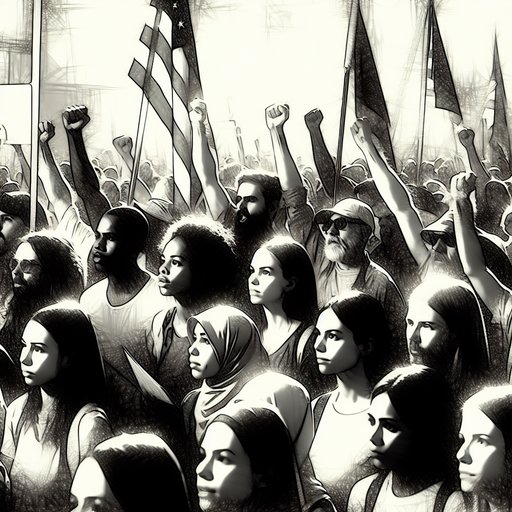
This week, stirring displays of civic activism across multiple countries underscored the enduring momentum of global democracy and human rights movements. From Ukraine to Togo and Germany, citizens have taken to the streets to demand accountability, challenge authoritarian power structures, and affirm their commitment to democratic principles, despite facing heightened risks and government pushback. Recent protests and legal developments, highlighted by visible outpourings of support for transparency, anti-corruption, and minority rights, suggest a resilient optimism among campaigners, laying the groundwork for further advocacy and reform.
In Ukraine, thousands have taken to the streets in response to new legislation that watchdogs and critics say threatens the independence of the country’s anti-corruption agencies. The bill, signed into law by President Volodymyr Zelenskyy, places tighter government oversight on two key bodies, sparking public outrage over fears of diminished transparency and potential setbacks in Ukraine's battle against endemic corruption. The protests have been met with vocal concerns not only from Ukrainian citizens but also from some of Kyiv’s closest international partners, who regard strong anti-corruption institutions as vital for safeguarding Ukraine’s democratic trajectory, especially during wartime [1] [2].
Meanwhile, in Togo, frustration mounted as new political maneuvers further entrenched the ruling family’s long-standing grip on power. Recent legislation has effectively allowed Faure Gnassingbé, the former president, to retain significant authority without electoral scrutiny. This move prompted furious protests, with citizens demanding genuine democratic reforms and regular, fair elections. Demonstrators say Togo’s future should not be decided by a single family, emphasizing the crucial link between meaningful elections and fundamental human rights. The scale of public anger reflects the population's steadfast commitment to democratic ideals, even in the face of deeply entrenched political structures [3].
Alongside political protests, social movements for equality also gathered momentum, as seen in Germany’s Christopher Street Day (CSD) in Berlin. With vibrant demonstrations and increased protective measures, tens of thousands voiced support for LGBTQ+ rights and broader social inclusion. Organizers and participants stressed the importance of visibility and solidarity at a time when right-wing extremism remains a concern in parts of Germany. The event combined celebration with pointed protest, reinforcing the message that progress on minority rights is both a cause for joy and continual vigilance [4].
These events form part of a broader global pattern that demonstrates both the challenges and possibilities inherent in contemporary protest movements. Whether demanding government accountability, defending civic freedoms, or supporting marginalized communities, citizens worldwide are showing that popular mobilization remains a critical driver of political and social change. While outcomes can vary, the persistent willingness to raise voices and organize peacefully highlights a core optimism that continued vigilance and collective action can defend—and even expand—fundamental rights [5].
- Thousands protest as Zelenskyy signs bill weakening anti-corruption agencies
- Backlash grows after Zelensky strips anti-corruption bodies of independence
- Furious protests at move to cement Togo ruling family's grip on power
- Christopher Street Day: CSD in Berlin mit lautem Protest und erhöhtem Schutz
- Protests are near constant. Do they work?
























